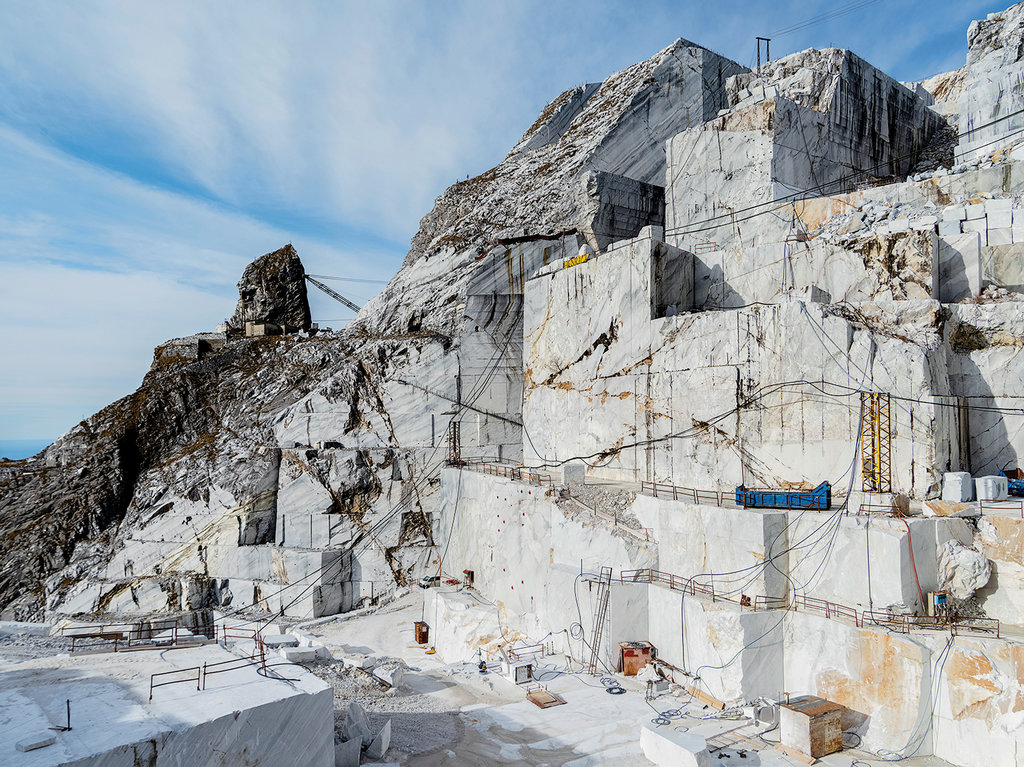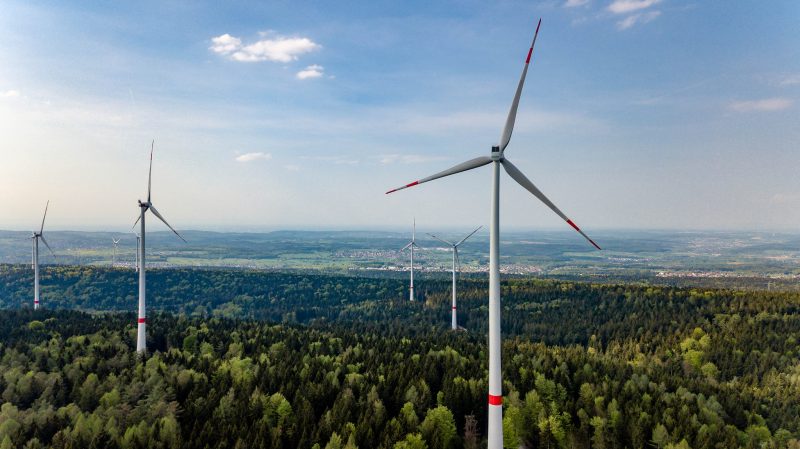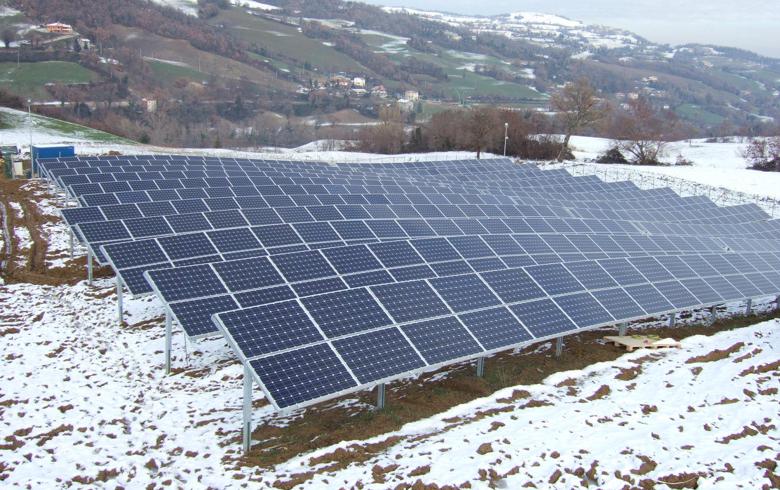Kallie Hoffman
Kallie Hoffman
Energy Use
Italy has very few natural energy sources, so most of its resources are imported. The primary energy comes from fossil fuels, which are mainly petroleum, natural gas, coal, and oils. Due to the lack of resources, energy use and consumption are more of a major problem in Italy than they are in the United States.
Energy and Natural Resources
- No substantial deposits of iron, coal, or oil, and NO nuclear power
- There are moderate natural gas reserves (Po Valley + Adriatic Sea)
- Leading producer of pumice, pozzolana, and feldspar. Also known for marble

Marble Quarries of Northern Italy, Image Courtesy of The New York Times
Alternative Energy
The urge for clean energy came from the need to reduce dependence on fossil fuels and hydrocarbons. Italy recognized the importance of this idea and is now 9th in the world for producing renewable energy, accumulating over 40% of electricity from renewable sources (solar, wind, bio).
Important Facts
- National Energy and Climate Plans (2021-2030) : phasing out coal
- National Energy Strategy (NES): highlights the country's commitment toward the climate and clean energy future- Goals: reaching 28% share of renewables in total energy consumption by 2030, 55% share of renewables in electricity consumption by 2030, narrowing the energy price gap, furthering sustainable, eco-friendly fuels, and more...
- Working towards lower-emission models, greater research and development, and increased awareness

Image Courtesy of ClimateChangeNews
Renewable Energy Sources
- Hydroelectricity - Turbines convert the energy of flowing water into mechanical energy- 14th largest producer in the world, plants located in the Alps and Apennines- Declined in the 21st energy due to the constant need for more energy
- Solar Power - Encouraged initially by Conto Energia incentive: tariffs put toward the investment in solar plants and renewable energy programs- 9% of Italy's total electricity consumption being sourced from solar- Second only to Germany in the EU- 5th in the world for producing energy from solar power

Solar Park in Italy, image courtesy of Renewables Now
- Wind Power 🌬️ 🌬️- Turbines capture wind energy to provide mechanical energy for electricity- Development is moderate, due to less productivity than solar power
- Geothermal 🌍 ♨️- Renewable energy that taps into the heat produced by Earth's core- 6th largest producer in the world and growing even more!!- Focused around Central Italy, with an emphasis on Pisa
- Bio Energy 🌳 🌲- Renewable energy produced from materials derived from biological sources- Rising rapidly — even more popular than wind power
Overall, in the past decade, Italy has made massive strides in the development of renewable energy, and its citizens are becoming educated on the matter and seem more willing to embrace green, clean energy...
Cost of Electricity 💲💲
Although Italy is a global leader in the drive toward greater renewable energy sources, 80% of its energy sources are still imported from countries such as France and Switzerland. This means that Italy pays 45% more than the European Union average for electricity. In addition, the extensive use of natural gas is already more expensive than fossil fuels, and the renewable energy incentives reach a total cost of more than $10 billion 🤯
Italy's electricity consumption per capita might be less than other European countries but the cost is SKY HIGH...
Italy vs. USA: Energy Edition
Italy 🇮🇹 🇮🇹
- The problem with energy consumption is more serious because fewer resources = extremely high prices to then import
- Houses and stores have fewer appliances
- A greater push toward green, clean energy (incentivizing solar energy) ♻️
USA 🇺🇸 🇺🇸
- Americans have MANY appliances - Winter = heat, Summer = air conditioning
- Greater resistance to green, clean energy — energy industry dominates, harder to change the mindset of people
- BOTH- Import more energy than produce- Carbon emissions are contributing to global warming- Still a need for greater research into alternative energy sources- Working toward environmental change at the national/international levels
<< Hide Menu
Kallie Hoffman
Kallie Hoffman
Energy Use
Italy has very few natural energy sources, so most of its resources are imported. The primary energy comes from fossil fuels, which are mainly petroleum, natural gas, coal, and oils. Due to the lack of resources, energy use and consumption are more of a major problem in Italy than they are in the United States.
Energy and Natural Resources
- No substantial deposits of iron, coal, or oil, and NO nuclear power
- There are moderate natural gas reserves (Po Valley + Adriatic Sea)
- Leading producer of pumice, pozzolana, and feldspar. Also known for marble

Marble Quarries of Northern Italy, Image Courtesy of The New York Times
Alternative Energy
The urge for clean energy came from the need to reduce dependence on fossil fuels and hydrocarbons. Italy recognized the importance of this idea and is now 9th in the world for producing renewable energy, accumulating over 40% of electricity from renewable sources (solar, wind, bio).
Important Facts
- National Energy and Climate Plans (2021-2030) : phasing out coal
- National Energy Strategy (NES): highlights the country's commitment toward the climate and clean energy future- Goals: reaching 28% share of renewables in total energy consumption by 2030, 55% share of renewables in electricity consumption by 2030, narrowing the energy price gap, furthering sustainable, eco-friendly fuels, and more...
- Working towards lower-emission models, greater research and development, and increased awareness

Image Courtesy of ClimateChangeNews
Renewable Energy Sources
- Hydroelectricity - Turbines convert the energy of flowing water into mechanical energy- 14th largest producer in the world, plants located in the Alps and Apennines- Declined in the 21st energy due to the constant need for more energy
- Solar Power - Encouraged initially by Conto Energia incentive: tariffs put toward the investment in solar plants and renewable energy programs- 9% of Italy's total electricity consumption being sourced from solar- Second only to Germany in the EU- 5th in the world for producing energy from solar power

Solar Park in Italy, image courtesy of Renewables Now
- Wind Power 🌬️ 🌬️- Turbines capture wind energy to provide mechanical energy for electricity- Development is moderate, due to less productivity than solar power
- Geothermal 🌍 ♨️- Renewable energy that taps into the heat produced by Earth's core- 6th largest producer in the world and growing even more!!- Focused around Central Italy, with an emphasis on Pisa
- Bio Energy 🌳 🌲- Renewable energy produced from materials derived from biological sources- Rising rapidly — even more popular than wind power
Overall, in the past decade, Italy has made massive strides in the development of renewable energy, and its citizens are becoming educated on the matter and seem more willing to embrace green, clean energy...
Cost of Electricity 💲💲
Although Italy is a global leader in the drive toward greater renewable energy sources, 80% of its energy sources are still imported from countries such as France and Switzerland. This means that Italy pays 45% more than the European Union average for electricity. In addition, the extensive use of natural gas is already more expensive than fossil fuels, and the renewable energy incentives reach a total cost of more than $10 billion 🤯
Italy's electricity consumption per capita might be less than other European countries but the cost is SKY HIGH...
Italy vs. USA: Energy Edition
Italy 🇮🇹 🇮🇹
- The problem with energy consumption is more serious because fewer resources = extremely high prices to then import
- Houses and stores have fewer appliances
- A greater push toward green, clean energy (incentivizing solar energy) ♻️
USA 🇺🇸 🇺🇸
- Americans have MANY appliances - Winter = heat, Summer = air conditioning
- Greater resistance to green, clean energy — energy industry dominates, harder to change the mindset of people
- BOTH- Import more energy than produce- Carbon emissions are contributing to global warming- Still a need for greater research into alternative energy sources- Working toward environmental change at the national/international levels

© 2024 Fiveable Inc. All rights reserved.